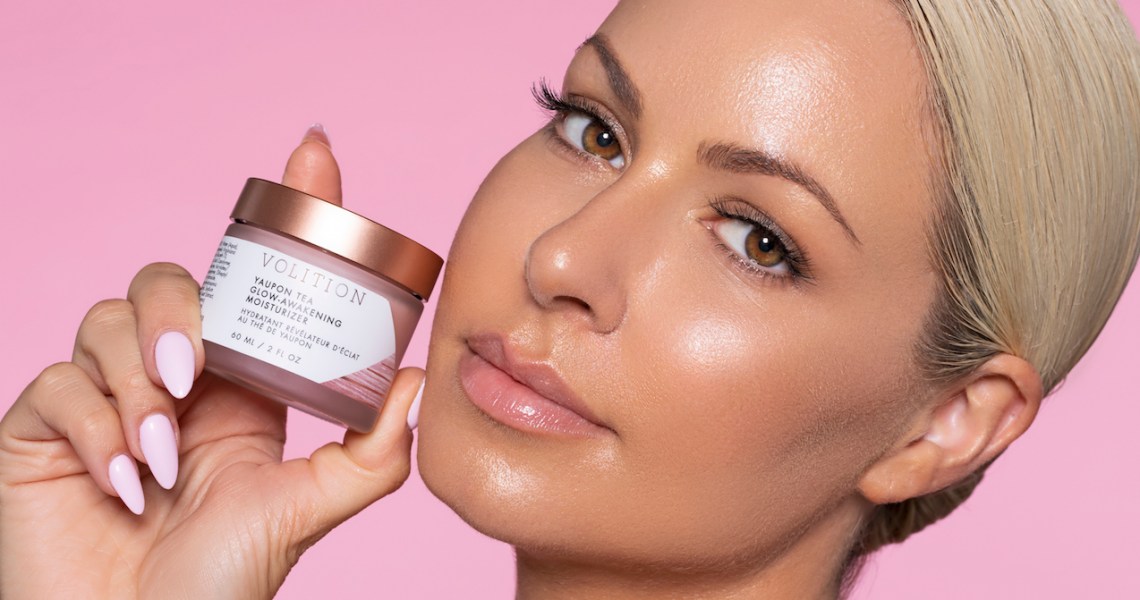Volition is expanding its online retailer foothold as it simultaneously finds ways to use mass-solicited product ideas to curate its beauty offerings for retailers and online communities.
Volition’s added three strategic retail partnerships to its roster, in addition to existing relationships within Sephora doors and Neiman Marcus. In September, it launched two holiday kits on Costco.com, with the potential for in-store expansion in 2022. The same month, it launched at UltaBeauty.com with influencer-co-developed products, including a moisturizer by Maryse Mizanin, a WWE wrestler and star of USA Network’s “Miz & Mrs” reality show. Volition will join The Hut Group’s retailers Dermstore, SkinStore and Look Fantastic in December. The 5-year-old brand’s sales increased 100% year-over-year in 2021, said Patricia Santos, Volition co-founder and CEO. Overall, it has raised $9.35 million in outside capital, according to Pitchbook.
“Because we are sourcing [product] ideas from a variety of sources, we can give retailers exclusives and products that fit their priorities or launch a [notable collaborator’s product] with the right retailer,” said Santos. “We’re not offering the same regimen to all of our retailers. We can pick and choose what fits best.”
For its part, Costco has slowly started to re-expand further into prestige beauty over the past four years. Volition’s holiday kits contain multiple best-selling products, including the Snow Mushroom Water Serum and Celery Green Cream. Kristy Masbang, The Hut Group director of new partnerships, pointed out that, as a crowdsourced brand, Volition can create genuinely inclusive products and address all skin types.
“We love the overall ethos of Volition and their approach to the market with a passionate community of consumers behind them,” said Masbang. “Not only are the products efficacious, but they’re also an all-inclusive line, [offering] skin-care for all. Moreover, they are an incredible addition to our Clean Beauty portfolio, which is another important pillar to us.”
Meanwhile, Ulta Beauty has continued to focus on younger consumers and has become a destination for brands seeking to scale. Ulta Beauty has also expanded its reach with a shop-in-shop partnership with Target, though Volition is not included within that assortment.
Aside from its retail partnerships, Volition is expanding its crowdsourcing proposition in other directions. In April, Volition launched its first body care product: a clean self-tanning lotion made in collaboration with dancer Lindsay Arnold, who has an ongoing role on “Dancing With the Stars.” Though “Dancing With the Stars” is an ABC network show, Volition also has an ongoing partnership with NBCUniversal to co-develop products with some of the mass media company’s talent. Using Volition’s proprietary algorithmic database called Pyxis, the brand can pinpoint trending ingredients and product ideas submitted by anyone on its website via a submission section. Volition plans to expand to hair care in 2022. Santos said Volition had to adjust Pyxis for the segment, because “hair care is totally different,” in that it tends to be more benefit-driven, while skin care is more ingredient-driven, Santos said.
“We’re in discovery mode in that category,” she said. “We parallel the [product development] path; we have to gather [submission ideas] and then run them through our Pyxis database. As soon as we get more submissions on hair care, then we’ll start being able to compare [options].”
Thanks to its co-development partnerships with people like Olympian Nastia Liukin, the brand receives more product submissions and raises brand awareness from different consumers. The products that influencers and celebrities co-create address their particular communities, adding a curated element to Volition’s brand positioning. However, Santos said that this dimension to the business is not a replacement for its original crowdsourcing concept. In 2021, Volition’s social following on Instagram has increased 130% year-over-year to 237,000 followers. Simultaneously, Volition’s customer acquisition costs have declined by 40% since 2019, as the brand has focused on driving repeat purchases and more organic growth, said Santos.
“As we got bigger as a brand, it made more sense that we would now be more interesting to influencers who have a bigger community. Whereas when we began, we received submissions from chemists, mothers and skin-care enthusiasts,” she said. “A lot of our hit products came from non-celebrities.”




